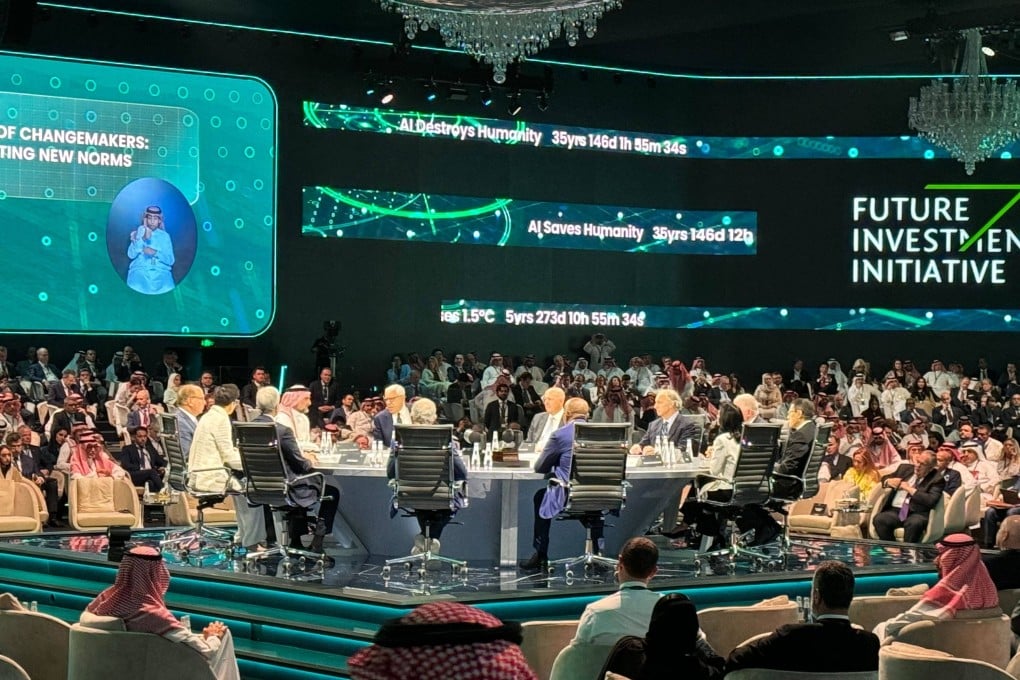Advertisement
Business leaders gathered in Saudi Arabia for Future Investment Initiative sound the alarm on high interest rates and geopolitical conflicts, highlight AI’s positive role
- The forum, which is themed ‘The New Compass’, runs from October 24 to October 26
- The world’s issues are too big to be solved in silos, so ‘[we] need to bring all shoulders to the wheel’, World Bank’s Ajay Banga says
Reading Time:3 minutes
Why you can trust SCMP

Peggy Sitoin Riyadh
Leaders from the world of finance and business convened in Riyadh issued a warning on Tuesday about the many perils the world currently faces, including geopolitical conflicts, economic uncertainties, high inflation and climate issues.
An awareness of human needs, global collaboration and artificial intelligence technology could, however, serve as catalysts for positive change despite these challenges and the ongoing technological upheaval, they said.
World leaders, policymakers, top CEOs, academics, non-governmental organisations, entrepreneurs, innovators, scientists and activists, and members of the media are currently gathered in Saudi Arabia for the seventh edition of Future Investment Initiative (FII), a three-day forum aimed at helping investors recalibrate.
Advertisement
“As we all know, the global economy enjoyed the benefits of almost free money for almost 15 years, with historically low interest rates,” Yasir Al-Rumayyan, the governor of Saudi Arabia’s sovereign wealth fund, Public Investment Fund, said in his opening remarks. The forum, which is themed “The New Compass”, runs from October 24 to October 26.
But the tide has turned, with central banks tightening monetary policy globally, and now there are growing concerns about a debt crisis, high interest rates and the impact of war on the global oil market.
Advertisement
Advertisement
Select Voice
Choose your listening speed
Get through articles 2x faster
1.25x
250 WPM
Slow
Average
Fast
1.25x